 Your new post is loading...

|
Scooped by
EcoVadis
December 13, 2018 12:26 AM
|
Demand for healthy and eco-conscious products is taking the beauty industry by storm; 52% of consumers now check products for sustainable claims and 65% of global sales are generated by brands with social and environmental values. Consumer brands that demonstrate commitment to sustainability outperform those that don’t. There is a major shift from historical purchasing drivers, such as price and convenience, to new drivers that are totally in line with the United Nations sustainable development goals, including wellbeing, ethics, safety and equity. People are now asking for qualified facts and proof around brands’ ethical and sustainable practices.

|
Scooped by
EcoVadis
December 12, 2018 11:57 PM
|
Luxe Pack has always held eco-responsible packaging close at heart, and this year’s 31st edition left no doubt that “going green”—including through mandates surrounding corporate social responsibility (CSR)—is no longer a trend or an option. Clever use of materials and refillable solutions were just some of the increasingly available options.

|
Scooped by
EcoVadis
December 5, 2018 6:23 AM
|
The winners of Ecovia Intelligence’s 2018 Sustainable Beauty Awards were announced in Paris a few days ago. Organised in parallel to the European edition of the Sustainable Cosmetics Summit, the awards give recognition to organisations “pushing the boundaries of sustainability in the beauty industry.” About 100 international entries were received for the awards, with the winners and runner-ups selected by a jury of professionals comprising an ingredient firm, retailer, formulator, media agency, natural cosmetics industry organisation, and research firm.

|
Scooped by
EcoVadis
December 5, 2018 5:58 AM
|
“There is an undeniable need to transform the current way plastic packaging end of life is managed in order to reduce significantly its environmental footprint,” says Laurent Auguste; senior executive vice president of development, innovation, and markets at Veolia; in a media release about the resource management company’s newly announced partnership with Unilever. To achieve such a transformation, Auguste believes, “It will take a collaboration of a new kind between all the actors of the value chain.” And he explains that “with this global partnership, Veolia and Unilever join forces in various geographies around the globe and, from the collection to the recycling, take a leadership role to redefine a responsible and sustainable future for packaging.”

|
Scooped by
EcoVadis
November 22, 2018 3:18 AM
|
While the cosmetics and toiletries market is struggling in France and many mature markets, the natural and organic products segment appears much more dynamic. The giants of the sector are trying to catch up the trend. Clearly, the cosmetics and toiletries market is not meeting current consumer expectations regarding natural and organic products. The gap does fully explain why sales remain flat but certainly significantly contribute to the trend.

|
Scooped by
EcoVadis
November 22, 2018 2:57 AM
|
Clariant, a world leader in specialty chemicals, and its Active Ingredients business is the proud recipient of the 2018 Sustainable Ingredient Award for Eosidin, an innovative active ingredient that is unique in protecting skin from indoor pollution damage.

|
Scooped by
EcoVadis
November 12, 2018 7:14 AM
|
While the cruelty-free movement has been picking up steam over the last few years, this marks a huge step forward for the cosmetics industry: Beauty behemoth CoverGirl is now entirely cruelty-free.

|
Scooped by
EcoVadis
October 24, 2018 7:59 AM
|
In 2016, Terre des Hommes Netherlands and Stichting Onderzoek Multinationale Ondernemingen (SOMO), conducted research on child-labour for mica along the border between Jharkhand and Bihar in Northeast India. It is estimated that 25% of the world production of mica is sourced from these illegal mines. According to the NGOs, the beauty industry makes up 18% of the mica market. The electronic industry has a 26% share while the paint has 24%. Regardless of share, all these industries have the equal responsibility to take action, said Frémont. “Bringing the mica activities in a clear legal framework would facilitate the organisation of the sector, facilitate traceability and implementation of good practices at a local level,” she said. “Above all, it would advance our objectives of eliminating child-labour in mica mining activities and of empowering local communities.”

|
Scooped by
EcoVadis
October 23, 2018 3:42 AM
|
Aprinnova, LLC. is offering an uninterrupted, unlimited supply of Squalane to help brands deliver “Clean Beauty” while reducing supply chain and formulation risks. "Clean Beauty” describes the massive growth in consumer demand for non-toxic, safe, cruelty-free, and effective ingredients that are naturally derived or made from non-toxic synthetic sources. However, supply chain risks and variations in the performance of key ingredients like emollients pose major problems for brands formulating to meet this demand. Neossance Squalane is plant-derived from renewable sugarcane which does not contribute to deforestation, absorbs C02, and reduces green house gases by 60% when compared to petrochemical processes. Our manufacturing process ensure stable, uninterrupted supply of pure, effective Squalane without sacrificing costs.

|
Scooped by
EcoVadis
October 15, 2018 5:06 AM
|
Unilever has called for a global ban on animal testing in the cosmetics industry partnering with animal protection group, Humane Society International (HSI). Though banned in the EU since 2013, research from Cruelty Free International suggests 115 million animals are still used worldwide for testing purposes with the most common experiments including exposing animals to radiation, forcing them to inhale toxic gases and injecting or feeding them potentially harmful substances. “Every company will tell you it supports alternatives to animal testing for cosmetics, but Unilever is the first of the beauty giants to throw its weight behind banning it all together,” he commented, urging other large beauty brands to “follow this example and join us on the right side of history.”

|
Scooped by
EcoVadis
October 15, 2018 3:04 AM
|
Symrise has halal-certified manufacturing facilities in Singapore and its headquarters in Holzminden, Germany, that comply with strict halal guidelines. This will allow Symrise to provide more than 200 products that are in accordance with international halal regulations. “We are pleased to be able to offer our customers a wide range of ingredients bearing the Halal seal thanks to our certified production facilities,” Dr. Gabriele Vielhaber, Senior Vice President of the Cosmetic Ingredients division at Symrise, said in a statement. Ethical consumerism, along with the growing Muslim population, continues to further the appeal of halal-certified beauty products.

|
Scooped by
EcoVadis
October 10, 2018 8:10 AM
|
The Unilever-owned skincare and haircare brand has received the accolade after committing to not conducting any tests on animals anywhere in the world. Following the news, the company will begin to display the PETA cruelty-free logo on its packaging, as of January 2019. "Cruelty-free" has become a major buzzword across the beauty industry this past year, with brands such as Tarte Cosmetics and Fenty Beauty by Rihanna seeing huge success with a business model that eschews animal testing. Earlier this month, The Body Shop teamed up with the animal rights organization Cruelty Free International to protest against cosmetic animal testing, while California recently passed the ‘California Cruelty-Free Cosmetics Act, SB 1249,' which will make it illegal for cosmetics tested on animals to be sold in the state as of January 1, 2020.

|
Scooped by
EcoVadis
September 22, 2018 7:59 AM
|
With packaging a rising area of interest when it comes to innovation and sustainability, consumers are expected to spend more on 2.8% more beauty packaging globally between 2017 - 2022, than they did over the past five years. This is according to recent market data from research provider Euromonitor International, whose global data on packaging can be accessed here. The firm says this is likely to fuel premiumisation in beauty products in developed markets, and the adoption of new products and packaging formats in developing markets.
|

|
Scooped by
EcoVadis
December 13, 2018 12:09 AM
|
With the time having come for 2019 trend predictions, Mintel has unveiled its insights into one key defining global trend for the industry in the coming year: ‘sub-zero waste’. We take a look in this Editor’s Spotlight. It’s the next level on from a general sustainability focus, with brands now expected to go above and beyond with green and ethical practices across the supply chain. Sub-zero waste is a hugely ambitious target, with many companies still working hard on reaching zero waste to landfill, and other similarly qualified waste reduction targets.

|
Scooped by
EcoVadis
December 5, 2018 6:28 AM
|
From food and biofuels to cosmetics and detergents, palm oil is found in countless products these days. Demand for the oil has surged in the last decade—global usage went from 37 million metric tons in 2006 to 64.2 million in 2016—in part because it is cheap and, for a time, enjoyed a good-for-you reputation. But what sounds good for us isn't good for the forests where oil palms (Elaeis guineensis) are harvested. According to a Purdue University study, deforestation is rising in major oil palm-producing countries. And it's happening even faster in areas certified as "sustainable."

|
Scooped by
EcoVadis
December 5, 2018 6:00 AM
|
The investment from the French luxury goods house will enable Sulapac to expand its business and R&D arm. Its biodegradable, micro-plastic material is made from FSC-certified wood chips and natural binders, which is said to have the durability benefits of plastic without the environmental downsides. “Chanel is definitely one of the forerunners in the luxury segment as they want to invest in the latest sustainable material and technology innovations,” commented Suvi Haimi, CEO and co-founder of Sulapac. ”Our mission to save this world from plastic waste just became a big step closer.”

|
Scooped by
EcoVadis
November 23, 2018 3:19 AM
|
Through packaging innovation, Kao has made significant strides in reducing plastic waste in Japan. As an example, the company currently packages 80% of its personal care and household products in refillable packs; that has reduced plastic waste from those products sold in Japan by 74%.

|
Scooped by
EcoVadis
November 22, 2018 3:15 AM
|
SPICE, the Sustainable Packaging Initiative for CosmEtics, has welcomed a new corporate member in Schwan Cosmetics.
SPICE was launched in May this year, a collective industry effort towards sustainable packaging that involves several major brands and suppliers. Schwan says that its participation in this initiative “confirms its commitment to sustainable development”. “Joining the SPICE Initiative is a logical step in our path to sustainable innovation,” explains Dagmar Chlosta, Chief Market Officer Schwan Cosmetics (pictured).

|
Scooped by
EcoVadis
November 15, 2018 7:06 AM
|
Cosmetics manufacturers are starting to turn to Halal packaging to tap into the huge and fast-growing Muslim markets in Asia and around the world. Packaging, a traditionally neglected segment within the Halal supply chain, is now growing in importance as the global Halal cosmetics market grows towards an anticipated US$45bn by 2020, according to a Technavio report on the Halal cosmetics industry. By then it will have more than doubled from just US$20bn in 2014.

|
Scooped by
EcoVadis
November 1, 2018 2:35 AM
|
Speciality chemicals company Clariant is working to reposition itself as sustainable solutions provider and a naturals expert as demand for transparency increases in the market.
The company has come a long way since being mainly a surfactant supplier 10 years ago. Since then, they have expanded and strengthened their portfolio to become a “top three” company. As sourcing for natural ingredients continue it become more complicated, their partnerships with companies with expertise in local resources and regulations have become more crucial.

|
Scooped by
EcoVadis
October 23, 2018 3:55 AM
|
Hallstar, a specialty chemical company headquartered in Chicago, has been awarded the 2018 ITEHPEC Innovation Silver Prize for its anti-blue light, anti-pollution, eco-designed active, BLUE Oléoactif. The ITEHPEC (Inovação e Tecnologia em Higiene Pessoal, Perfumaria, e Cosméticos) Innovation Award, created in 2005 by Brazil’s most important personal care association, recognizes suppliers that contribute to the Brazilian cosmetic industry through new ingredients or processes. Award winners were announced at in-cosmetics Latin America in Sao Paulo on September 18th. “This recognition highlights the substantiated wellness and cosmetic benefits of 100% vegetal, locally-sourced actives,” observes Anne Rossignol-Castera, Hallstar’s General Manager of Oléos. “Oléo-éco-extraction technology, which we’ve leveraged in a diverse collection of Oléoactifs, enables us to transfer a plant’s biological footprint directly in a vegetable oil complex. BLUE Oléoactif is a great example of gathering the best from nature and using sustainable technology to harness its power.”

|
Scooped by
EcoVadis
October 18, 2018 8:20 AM
|
Non-biodegradable microplastics in cosmetic products are a major cause for concern. Every day, tonnes of plastic ‘dust’ resulting from the use of personal care products (i.e. microplastics with an exfoliating function for shower gels and various “rinse-off” cleansing products) are poured into the world’s seas, together with microplastics having specific technical properties used in face and body creams, sunscreens and make-up (non-rinsing, or “leave-on” products). This product, developed in collaboration with ROELMI HPC, an Italian sustainable cosmetics firm, biodegrades rapidly and totally in the environment in accordance with the guidelines of the Organisation for Economic Co-operation and Development (OECD). It is fully biodegraded in days in a purifying plant, ensuring that no residues end up in rivers and seas and with the enormous advantage that the resulting sludge has no microplastics.

|
Scooped by
EcoVadis
October 15, 2018 3:11 AM
|
The Body Shop and Cruelty Free International brought 8.3 million signatures against cosmetic animal testing to the United Nations Headquarters in New York City to create a global framework to end animal testing while advancing the United Nations’ sustainable development agenda. The celebration of these signatures is a culmination of more than 30 years of advocacy between The Body Shop, the first international beauty brand to campaign against animal testing in cosmetics, and its long-time campaign partner Cruelty Free International, the first global, non-profit organization dedicated to ending cosmetic product and ingredient testing on animals. The joint effort is the most ambitious campaign ever against cosmetic animal testing and serves as a model to inspire action from businesses, governments and citizens to advance Sustainable Development Goal 12 (SDG12): Responsible Consumption and Production.

|
Scooped by
EcoVadis
October 10, 2018 8:17 AM
|
Jayn Sterland, managing director of Weleda UK & Ireland, has retained her top spot in this year’s ‘Who’s Who in Natural Beauty’, published in the autumn issue of Natural Beauty News. Jayn has regularly appeared in the Top 25 since its launch in 2007, and has been voted into No.1 position for three consecutive years. The Top 25 provides an overview of the prominent figures and innovators who are shaping and leading the UK natural beauty sector, all voted for by their industry peers. The list includes founders of beauty brands, manufacturers, bloggers and influencers, writers, distributors and make-up artists, who all champion natural and organic cosmetics on a daily basis.

|
Scooped by
EcoVadis
October 4, 2018 4:03 AM
|
California has just passed legislation that will make it illegal for cosmetic manufacturers to sell products or ingredients that have been tested on animals.The law, which was approved by Governor Jerry Brown last week, will go into full effect in January 2020. Senate Bill 1249, the California Cruelty-Free Cosmetics Act, was endorsed by over 100 cosmetic companies, a dozen celebrities, and thousands of voters. Its approval means that California will now join the European Union, Switzerland, India, Israel, and Guatemala in banning animal testing.
|

 Your new post is loading...
Your new post is loading...





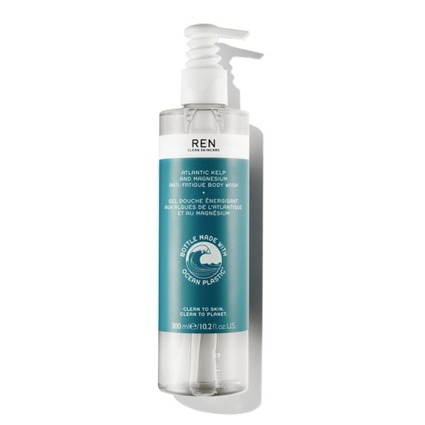

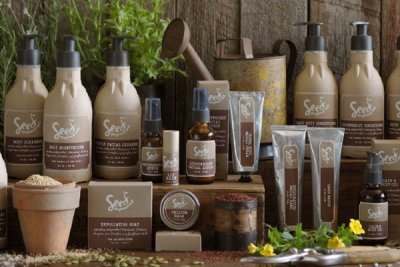
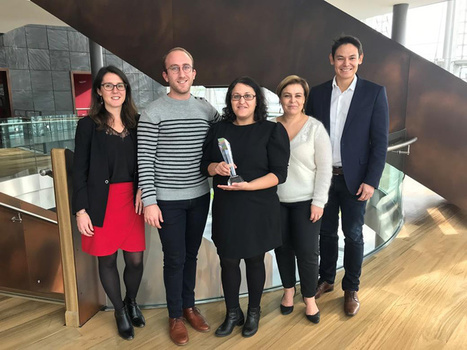
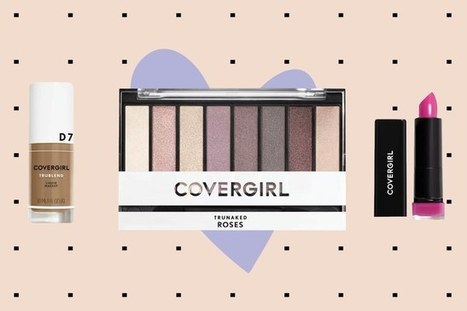
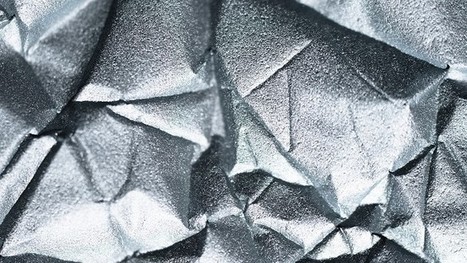
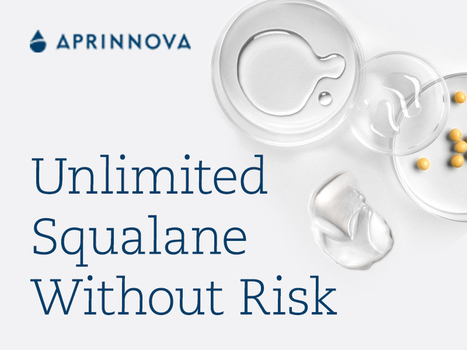
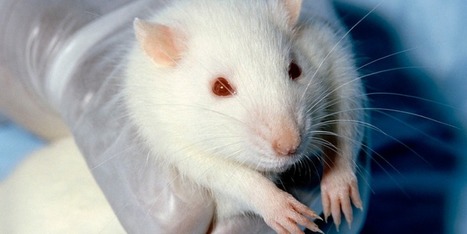



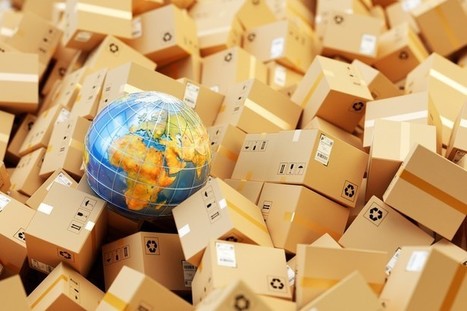

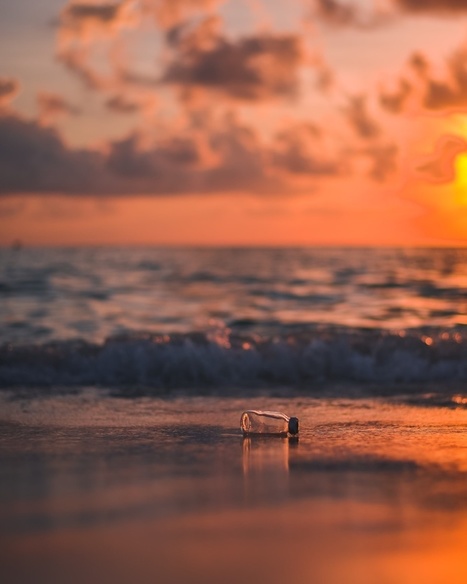


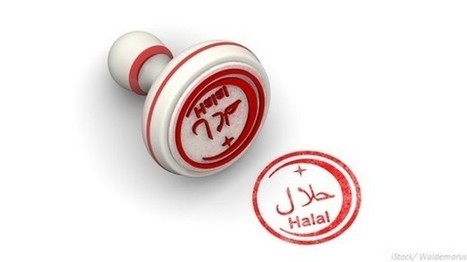


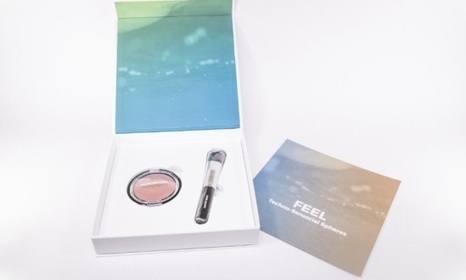
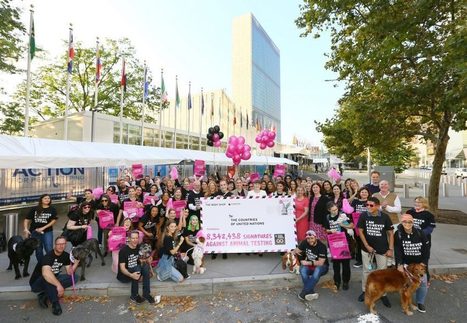

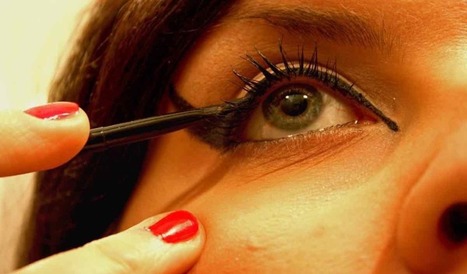





As demands on business for stronger transparency increase, global supply chains are reaching levels of unprecedented complexity. Transparency in the supply chain is no longer just a matter of ensuring efficiency and productivity; it is a regulated and market-driven necessity.